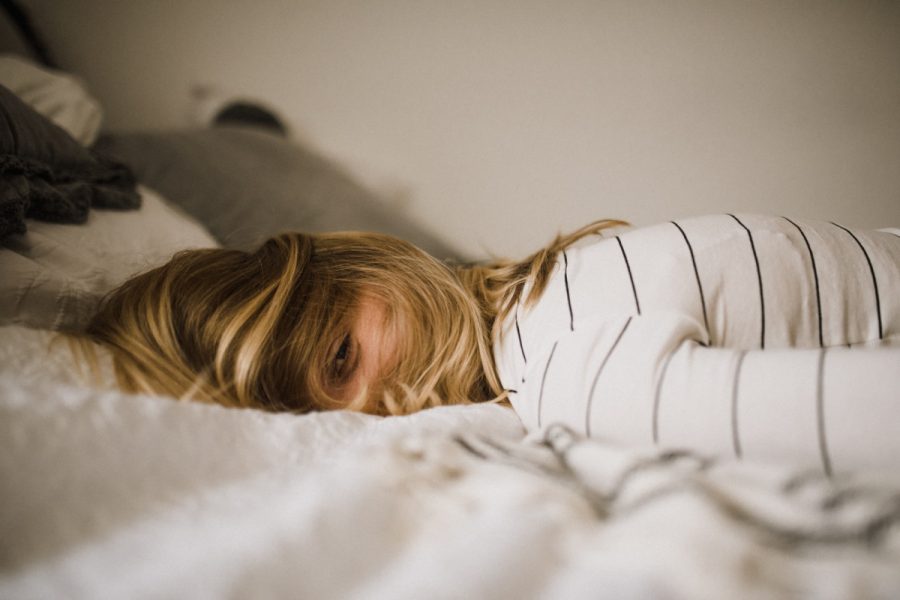There are many reasons why you might continue to struggle with sleep even after a long day or even with symptoms of insomnia. You may not be able to sleep because of worry, stress, or anxiety, and this article gives some tips on how to deal with these issues so that you can get the rest you need.
Table of Contents
What is sleep and why do I need it?
Sleep is a natural state of rest and refreshment. It allows your body to recover from the day’s activities and prepare for the next day.
Sleep is important not only for your physical health, but also for your mental health. When you don’t get enough sleep, you can experience mood swings, decreased concentration, and problems with memory.
There are many different types of sleep, each with its own benefits. Here are some of the main types of sleep:
- Napping: Napping is a good way to catch up on your sleep. It lasts around 20 minutes and is usually light enough that you won’t feel sleepy afterward. You can do it in any position that feels comfortable.
- Sleeping in: Sleeping in means getting enough sleep at night rather than trying to get through the entire night without sleeping. Most people need around seven hours of sleep per night to feel well rested.
- Light sleep: This type of sleep is usually light and refreshing. You may be able to wake up easily and feel alert.
- Deep sleep: This is the deepest type of sleep and is necessary for healing and restoring energy levels.
How much sleep do I need?
If you’re like most people, you often feel exhausted but can’t fall asleep. You may be wondering how much sleep you need to feel rested. The amount of sleep you need varies from person to person, but there are some general guidelines. Most experts recommend between 7 and 8 hours of sleep per night. If you’re generally a good sleeper and get the recommended amount of sleep each night, you’ll likely still feel tired the next day. Here are some reasons why you might not be able to fall asleep despite being tired:
- You’re stressed or anxious about something.
- You’ve been drinking alcohol or caffeine before bed.
- You have a lot on your mind that’s keeping you awake.
- You haven’t had enough sunlight during the day.
Why can’t I catch up on my sleep?
Your sleep schedule is off. Here are 5 common reasons why you may not be getting enough sleep:
- You’re staying up too late.
- You’re waking up early in the morning.
- You’re struggling to get to sleep at night.
- You’re not sticking to a regular sleep schedule.
- You’re using sleeping pills or other medications that may be affecting your sleep.
What causes insomnia?
Most people experience insomnia at some point. The cause of insomnia can vary, but there are some common reasons.
Here are five of the most common causes of insomnia:
- Anxiety: People who experience a lot of anxiety often have trouble falling asleep because they’re constantly worrying about the future or past. In addition, anxiety can make it difficult to relax and get comfortable in bed.
- Stressful life events: major life changes, such as the death of a loved one, can be incredibly stressful and lead to insomnia. Stress also has a negative impact on sleep quality and duration.
- Poor sleep habits: if you don’t get enough sleep, your body will start to react in ways that can cause insomnia. For example, it’s common for people who suffer from insomnia to have difficulty concentrating and staying awake during the day.
- Obsessive-compulsive disorder (OCD): People with OCD often have trouble sleeping because they’re constantly worried about doing or saying something wrong while asleep. This can lead to feelings of anxiety and stress that keep people from getting a good night’s sleep.
- Medical conditions: Some medical conditions may cause insomnia or induce bad sleep habits that can lead to sleep problems. For example, people who have a condition called restless legs syndrome often have trouble falling asleep because their legs twitch uncontrollably throughout the night.
Can certain medications help me sleep better?
There are many reasons why some people struggle to sleep, but it can be difficult to determine which medication or combination of medications may be the best solution. While some medications may help people sleep better initially, over time they may become less effective and may need to be increased or changed.
Here are some possible reasons why a particular medication may not work well to help someone sleep:
- The drug may not be able to cross the blood-brain barrier.
- The drug may cause drowsiness or other side effects that interfere with sleep.
- The person may have a rare genetic disorder that affects the way the drug works in the body.
- The person’s natural sleep patterns may be disturbed by the medication.
Is there anything else that can help me sleep better?
There are a few things that you can do in order to help you get more sleep. The first thing is to make sure that your bedroom is dark and quiet. If you can, try to avoid watching television or reading before bed. Instead, try reading a book or listening to calming music.
If you have trouble sleeping, you may also want to try melatonin. Melatonin is a hormone that helps regulate sleep-wake cycles and can be taken as a supplement or as part of a sleep routine. Talk to your doctor about whether melatonin could be helpful for you.
Conclusion
If you’re struggling to get a good night’s sleep, there could be several reasons why. Perhaps you’re not getting enough rest because of your work or school schedule, or maybe you’re simply stressed out from all the things going on in your life. Whatever the case may be, it’s important to take some time for yourself and try some of these strategies to help you get more restful sleep.







